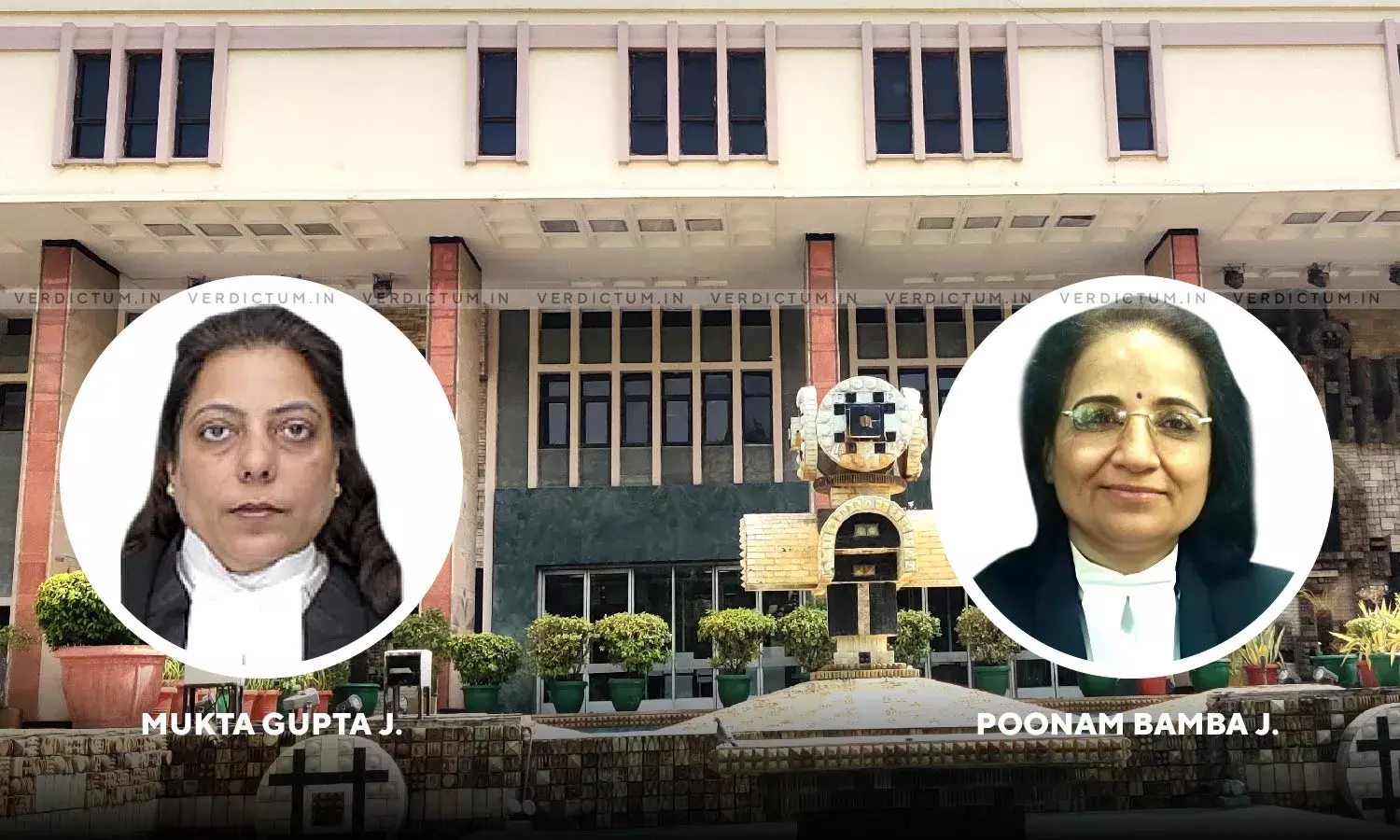In Rape Cases, It’s Sufficient To Prove That There Was Penetration: Delhi HC Awards 20-Year Sentence To Two Men For Raping Nigerian Woman
The Delhi High Court has awarded 20 years imprisonment to two men for raping a Nigerian woman in the year 2014 on the ground that for the offence of rape, it’s sufficient to prove that there was penetration.
A Division Bench comprising Justice Mukta Gupta and Justice Poonam A. Bamba held, “The second ground on which the testimony of this witness is assailed is that despite the claim of the prosecutrix that both the appellants committed rape on her, the DNA analysis report does not support the claim. However, absence of semen which could on DNA analysis account for the alleles of the two appellants does not discredit the version of the prosecutrix that she was raped by the two appellants one after another. For an offence of rape, it is sufficient to prove that there was penetration.”
The Bench modified the jail term of the accused from 30 years to 20 years noting that one of them was unmarried while the other had to look after his children and parents, and the possibility of their reformation cannot be ruled out.
Advocate H.R. Khan with Advocate Praful Sinha appeared on behalf of the appellants while APP Prithu Garg appeared on behalf of the State.
Factual Background -
In 2014, the victim, a Nigerian national, was returning from a friend's party at the District Centre in Janakpuri and was looking for an auto. During that time, a car stopped near her and the appellants bundled her into the vehicle and took her to a house and raped her. After committing the crime, they put her back into the car and dumped her near a metro pillar, and also took away her bag containing valuables.
After such an incident, the woman went to a police station and lodged a complaint. Based on the description of the house given by the woman, the appellants were arrested. The appellants were therefore before the High Court challenging the judgment passed by the Trial Court, claiming it was a case of mistaken identity and that they were convicted of an offence they had not committed.
The High Court in view of the facts and circumstances of the case noted, "Considering the evidence on record and that the version of the prosecutrix (victim) is not only wholly reliable but is also supported by other facts and circumstances, lending a further assurance to her version, this court finds no error in the impugned judgment of conviction.”
The Court observed that the absence of semen traces does not falsify the victim's claim that she was raped by the two men one after another.
"She was pulled inside the car and thus, she would not have noted the car number and could not have identified the car as it would have taken a few seconds or few minutes for the kidnappers to have kidnapped the prosecutrix, giving her no time to see the car number or details of the car. "Further, while taking the route to the place where she was raped at night, it would have been difficult for a person who is not an ordinary resident, to identify the roads, which is further compounded by the fact that as per the prosecutrix, her head was bowed down in the car so that nobody could see her”, said the Court.
The Court also noted that no motive can be attributed to the prosecutrix to falsely implicate the appellants.
“… this Court deems it fit to modify the period of sentence for offence punishable under Section 376-D IPC to rigorous imprisonment for a period of 20 years along with the fine of ₹40,000/-, in default whereof, to undergo simple imprisonment for 6 months. The sentence for the remaining offence(s) would remain the same as awarded by the learned Trial Court. Thus, modifying the sentence for offence punishable under Section 376-D IPC, the impugned order on sentence is also upheld”, held the Court.
Accordingly, the Court disposed of the appeal.
Cause Title- Raj Kumar & Anr. v. State (Neutral Citation: 2023:DHC:4288-DB)




